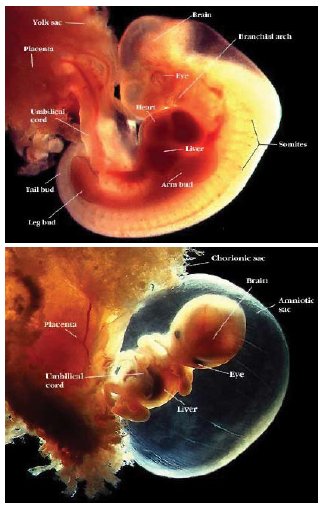Posts Tagged ‘tips for new mother’
Pregnancy Trimester
Posted on: April 4, 2010
Pregnancy First Trimester
The first Trimester of pregnancy is an exciting and yet scary time and is marked by an invisible, yet amazing transformation. Always remember that the symptoms you experience are generally normal, and most will go away as your pregnancy progresses. Some symptoms you may experience include nausea and vomiting, fatigue (the most pronounced symptoms), frequent urination, food aversion and breast swelling and tenderness.
Although, most pregnancy symptoms that you experience in the first Trimester are harmless and merely annoying, watch out for a few symptoms like bloody/watery vaginal discharge, swelling of hands/feet/face, recurring headaches, excessive vomiting, blurriness and decreased and burning with urination, which require medical attention.
Pregnancy Second Trimester
The second trimester, the middle part of pregnancy, is the most comfortable period and is a good time to prepare yourself for the arrival of your little one. As your pregnancy progresses, the nausea and fatigue begin to fade and you start developing the outward symptoms of pregnancy, namely, weight gain and growing belly. Do not be alarmed if you experience shortness of breath or dull aches and pains in your abdomen, groin, back and thighs as these are signs of your body adjusting to accommodate your growing baby.
Though the risk of Miscarriage decreases as your pregnancy progresses, the possibility of preterm labor begins. Recognizing the signs of preterm labor like contractions or cramping, sharp pains, increased vaginal discharge or bleeding, continuous diarrhea, etc., can help you and your doctor can save your pregnancy.
Pregnancy Third Trimester
The final stage of pregnancy, third trimester, ends with labor and the birth of your baby and is a period of excitement. Large size of your growing baby may bring in physical discomforts and you may experience heartburn, increased fatigue, hemorrhoids, swelling on the ankles and fingers and Braxton Hicks contractions (mild contractions) that last for about 30aE”60 s.
Do not hesitate to contact your doctor if you observe sudden swelling on your ankles and if you experience a rapid and sudden weight gain. Do continue to keep looking for signs of pre term labor like contractions accompanied by vaginal discharge, sever back pain and if you experience more than 8 contractions/h, occurring at regular intervals.
After Pregnancy Tips
Posted on: April 4, 2010
After Pregnancy Tips
- Share
After having a baby, you’re likely anxious to get back to work in getting your old body back. Although some things have changed, including the time you’re able to devote to yourself and the time you have to prepare healthy meals, you still need to make healthy eating after a pregnancy a priority. You shouldn’t be too strict on yourself after having a baby, but instituting easy dieting tips can help you make better food choices and lose weight without depriving yourself of your favorite foods and restricting your self to an unforgiving diet regimen.
- Talk to Your Doctor
Before you start dieting after having a baby, make sure that you visit your doctor for your six-week postpartum check-up. Your body needs ample time to recover after having a baby, notes BabyCenter.com, and it needs enough time to establish a good milk supply if you’re breastfeeding. Eat a sensible but nonrestrictive diet for the first six weeks. After your doctor gives you the go ahead, you can try a more aggressive diet plan.
- Stash Snacks
Keep a myriad of snacks on hand. For the first few months after bringing a new baby home, you’ll likely find yourself unable to do much more than sit on the couch and feed the baby. Prepare all of your snacks once a week while your baby is napping. Then when you need a quick snack, you’ll have cut veggies and fruit, cheese cubes and crackers readily available to grab and go, and you won’t resort to convenient but unhealthy snacks such as chips or cookies.
- Small Meals
New moms are always on the go, making elaborate, sit-down meals nonexistent for the first few months. Do away with three meals a day and instead try five smaller meals a day that you can eat quickly, recommends the Mayo Clinic. You’ll never be hungry, and you’ll stimulate your metabolism to constantly burn fat and calories by constantly eating. By never allowing yourself to get hungry, you do away with a slow metabolism that stores calories and fat in your body.
- Breastfeeding
Breastfeeding is nature’s way of getting your pre-baby body back. Fisher Price estimates that breastfeeding burns around 500 calories per day, but it also stimulates your appetite. Load up on fiber-rich foods such as veggies, legumes, nuts and whole grains so you feel full on less calories. Then breastfeed for as long as you can for a healthier baby and a healthier you.
- Exercise with Baby
Don’t forget to add exercise to a healthy diet as you try to lose the baby weight. You may be limited in the activities you can do with a baby on your hip, but you can certainly go for a walk, do some squats and lunges with baby in hand, or look for a mommy and me baby yoga class to keep your physical activity level high as you eat more sensibly to lose weight.



